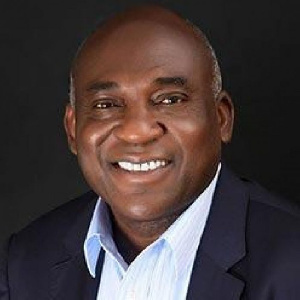 Rockson Dogbegah, National President of the Institute of Directors
Rockson Dogbegah, National President of the Institute of Directors
Organizational heads have been charged to incorporate talent management plans into their managerial structures and strategies in order to achieve organizational goals.
Talent management is a system designed to develop, motivate and sustain the workers of an organization.
Mr. Rockson Dogbegah, Executive Chairman, Berock Group, said talent management was crucial in actualizing organizational objectives, ensuring success, and sustaining the competitive edge of an organization.
He was speaking at the 42nd National Mandatory Continuing Professional Education (MCPE) and the 20th Graduation Ceremony of the Chartered Institute of Administrators and Management Consultants (CIAMC), in Accra last Saturday.
Mr Dogbegah was speaking under the event’s theme: “Talent Management in the Administration and Management Consultancy Profession.”
He stressed that talent management attracted and retained people who were good at things they were not taught (talents), motivated employees, increased employee performance, and ensured higher clients’ satisfaction.
The Executive Chairman of Berock Group, who is also the National President of the Institute of Directors (IoD), underscored that the absence of talent management “declined productivity, instigated poor industrial relations and made the acceptance of change difficult.”
Meanwhile, he said workforce planning, talents attraction, and identification, learning and development, engagements, retention, and deployment were key in talent management procedures.
Adding that in designing the talent management plan, “organizations should hire for the future, set up new employees for success, pay fair and competitive rates and optimize the performance of its workforce.”
He, therefore, urged organizations to as a matter of urgency, embrace and develop talents and keep to their commitments in order to make organizational goals attainable.
A total of 194 people in the categories of professional fellows, full members, associates, and graduates were inducted.
Seven people were inducted as professional fellows, 29 as full members, 154 people as associates, and four as graduates of the Institute.
Mr. Paul Kwatei Hammond, Board Chairman of CIAMC, encouraged the graduating class to “demonstrate by the quality of work you do at the various institutions that you are better trained and equipped.
“You have significantly more information and experience than the ordinary person, which I believe raises both your potential and your obligations,” he added.
Mr. Hammond said the Institute would continue to strengthen administration practice through the training of members on the tenets and attributes of contemporary professional administration for effective and efficient practice.
Likewise, the Chief Executive officer of CIAMC, Mr. Samuel Mawusi Asafo, reiterated the need for the graduating class to use their garnered skills and knowledge to impact their respective organizations and the country at large.
“Use your skills and knowledge for personal development and organizational development and it will transcend into national development” he stated.